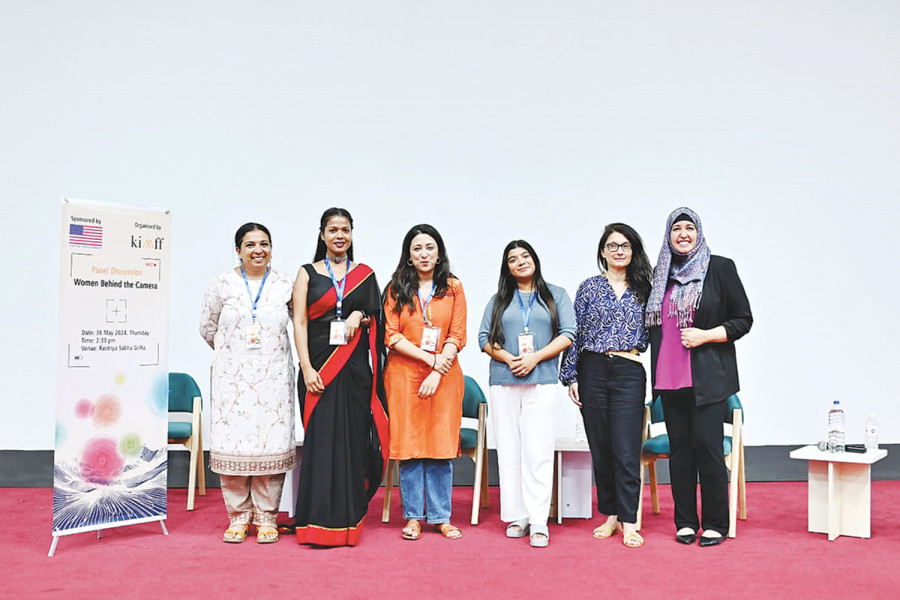Culture & Lifestyle
KIMFF kicks off with ‘The Tiger’s Nest’
The festival celebrates women filmmakers in a special screening and discussion.
Post Report
The 21st Kathmandu International Mountain Film Festival (KIMFF) opened with the Asian premiere of Brando Quilici’s ‘The Tiger's Nest’.
‘The Tiger’s Nest’, directed by Italian filmmaker Quilici, tells a heartfelt story of a teenager, Balmani, and a tiger cub. After losing his mother in an earthquake, Balmani, living in an orphanage, rescues the cub from poachers, leading to a unique friendship and an adventurous journey through the Himalayas. Filmed in Nepal, it stars local actors like Luniva Tuladhar and Bhumiya Chaudhary.
At the opening ceremony, KIMFF President Ramyata Limbu emphasised the festival’s theme of change, reflecting KIMFF’s evolution over the past two decades. She noted the festival's adaptation to changing audience preferences, the rise of OTT platforms, COVID impacts, and financial challenges.
Writer and director John Porter, in his keynote speech, reminisced about his first visit to Nepal 45 years ago. He noted that while much has changed, the Nepalese smile remains the same. He stressed the importance of the Himalayan mountain range to human civilisation and the significance of holding KIMFF in connection with Everest Day.
The opening session featured a musical performance by the all-women Shree Tara Band.
Recognising the underrepresentation of women directors and technicians in the Nepali film industry, KIMFF has given special importance to films by women directors. On the festival’s second day, alongside these screenings, a discussion titled ‘Women Behind the Camera’ was held, featuring directors Akanksha Karki, Vidushi Giri, Sarita Sah, and Dina Mufti.
The session, co-presented by the US Embassy, began with remarks from Ms Zehra Naqvi, the Information Officer at the US Embassy in Nepal. She celebrated the contributions of women behind the camera and highlighted the power of storytelling in conveying emotions and states of mind.
During the discussion, facilitated by Pooja Pant, the participants shared their perspectives as female filmmakers. Sah emphasised her ability to articulate overlooked elements clearly. Karki noted that women tell stories with more sensitivity and empathy, while Giri highlighted the importance of perspective. Similarly, Mufti stressed the need for more technically skilled women in the film industry despite increasing on-screen female representation.
The filmmakers also discussed challenges such as discrimination and the lack of trust in women’s leadership and competence. They emphasised the importance of recognising women's powerful leadership.
In an interactive session with the audience, actress Tuladhar asked about the panellists' future visions. Sah expressed her commitment to continuing to make films that bring suppressed, unheard, and untold stories of women to the screen.
Before the discussion, films by Giri (‘Chiso Ghar’), Sah (‘Threshold’), and Karki (‘Sanai’) were screened.




 14.24°C Kathmandu
14.24°C Kathmandu


.jpg&w=200&height=120)











